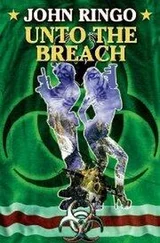Pastor Unonius worked zealously advising all his countrymen to settle in Chicago, but the guide thought that on this point the minister had wrongly interpreted God’s will.
Landberg was indeed like a father to the immigrants, and all agreed he had well earned the three dollars each person was to pay him.
“He is an upright man and an honest guide,” was the way Karl Oskar summed up their feeling. And he worried a little about their future when they would no longer have an interpreter to help in their dealings with the Americans.
Landberg had given Robert a new English textbook: A Short Guide to the English Language. This book had a chapter entitled “Instruction in Pronunciation for the Swedes.” Here were enumerated those English words in common use, as well as advice in general for immigrants. Landberg’s gift was quite a small book, hardly bigger than the almanac; Robert could carry it in his pocket and take it out when he needed it. Landberg had explained Robert’s difficulty with his first language book. The Swedish youth had been unable to comprehend why the sentences in English were spelled in two entirely different ways, one sentence always within parentheses. Now he was informed that the words were to be pronounced according to the spelling within the parentheses. Robert had learned English altogether wrong from the very beginning.
The first thing he had tried to say to the Americans was: “I am a stranger here,” and he had pronounced the words carefully, according to their spelling and Swedish pronunciation. But people had only stared at him, he had been unable to make a single soul understand that he was a stranger. From this new book, he learned how the words were supposed to sound: Aj äm ä strehn’djër hihr.
And Robert began at once to practice the pronunciation of the twenty-six letters of the English alphabet. He hurried his study of the language, in order to help himself and to lend his mouth to others of his group when their interpreter left them. He must show the others what he could do, and they would then value him the more and show him the respect due to learning. From now on he read in his language books every free moment, and always without Elin’s company. He told her, somewhat sarcastically, she was supposed to know English already; hadn’t the Holy Ghost filled all the reborn ones?
After her disclosure in New York of his secret concerning the captain’s “slave trade,” there was no longer the same intimacy between them. Moreover, Elin had difficulties with the foreign language, she moved her lips too much and pushed out her tongue too far while speaking English. How many times he’d told her to keep her mouth still and pull her tongue back; but she did not obey him. Not all people were so fortunately born as to be able to learn a new language; not even the rebirth seemed of any help to Elin.
Robert had been in danger of his life and he knew the importance of learning English. Moreover, Landberg now told him of a terrible thing that had befallen a newly arrived farm hand from Sweden: the boy had been one month in America when he met a cruel, heartless, cunning woman who inveigled him into going with her to a priest, who married them. The farm hand understood what was happening but he didn’t know one word of English, he couldn’t even say “No” at the wedding, and this the wicked woman knew. And now her victim had been ordered by the court to support her for the rest of her life. So Robert understood that there were many reasons why it was necessary to learn the language — in order to escape the many dangers that lurked in this land.
— 3—
Karl Oskar and Kristina were standing at the starboard rail where they could keep an eye on their belongings — their bulky linen sacks and the great America chest — stacked with other movables against the ship’s wheelhouse. The lake heaved moderately, the breeze was cooling, the heat did not seem a plague when the steamer was in motion. Karl Oskar complained of the slow speed: he was constantly worrying lest they arrive at their place of settling too late for sowing and planting. If they were unable to gather any crop this summer, they would be in ill circumstances. Now he was a restless man, he would not be at peace till the day when he could start to work.
Kristina watched the purring drive wheel, whipping the water like a dasher in a churn full of cream. When she used to make butter, the cream would splash up in her face, and now, as the wheel threw water against the side of the ship, the spray splashed on her face and into her eyes; it felt refreshing.
Ulrika of Västergöhl came up to them hurriedly. She addressed Karl Oskar in agitation: “Now I know the truth! Just try to explain this away!”
He turned slowly toward her: “What is it this time?”
“You have deceived us! You’ve swindled and cheated us and made us travel this long way!”
“What in hell are you accusing me of?”
“You said it was only two hundred and fifty miles!”
“That’s what the captain of the Charlotta said.”
“But our guide says it’s fifteen hundred miles! Six times as far as you said! Landberg doesn’t lie, but you’ve lied to lure us along! Now comes your day of reckoning, Karl Oskar!”
Ulrika’s lips quivered, her eyes flamed, her whole body shook with anger: “Because of your notions the rest of us have to travel many hundreds of miles unnecessarily! Because you lied to us, Karl Oskar! Why have you deceived us? Answer me, you — you — lying—” She called him an obscene name.
His cheeks paled at this insult, and Kristina grew frightened lest he lose his head.
Ulrika did not give him time to reply. She continued to rant: How could he be so low, such a scoundrel, as to cheat his own countrymen in a foreign land, so shabby as to lure them all this way, so deep into America? Not one of them would have followed him had they known what an eternal distance it was. He was certainly the most selfish and cruel and false of all the menfolk she had met. They must sail sea after sea, only because of him! They were all tired to death of this endless traveling! They wanted to settle down somewhere, they wanted to arrive! But now he couldn’t deceive them any longer, now it was over! Now his true colors were discovered! Now he was at an end with his smirking, his lying, his cheating! Now was the time of reckoning, now he must answer!
His anger seethed within him so he could hardly speak. He burst out: “You accuse me? You insult me? You — you — you dirty old sl—”
He stopped short. But Ulrika egged him on: “Yes, say it right out! Say what you started—‘You old slut’! That’s what you meant — say the whole word! Say it quickly!”
By now both of them were shouting at the top of their lungs. Long Landberg hurried to them. Danjel Andreasson and Jonas Petter suddenly appeared.
“Ulrika accuses me of deceiving you about the distance!” Karl Oskar shouted.
Landberg explained soothingly: When Karl Oskar had said it was two hundred and fifty miles from New York to Minnesota, he had spoken the truth, because such was the distance measured in Swedish miles. And when he, Landberg, had told Ulrika that the distance was fifteen hundred miles, then he too had spoken the truth, for he had meant American miles. An American mile was only one sixth of a Swedish mile.
Both Karl Oskar and Ulrika were in the right; they might as well end their quarrel.
But the words uttered on both sides had been too insulting. Karl Oskar was deeply offended: “If anyone thinks I have lied and cheated our group — step up!”
Kristina held on to his elbow: “Be calm, Karl Oskar! It was only a misunderstanding.”
“No! Now I want to tell the truth!”
Читать дальше










